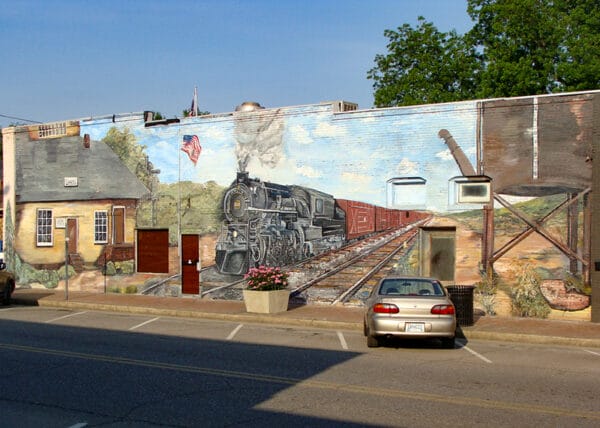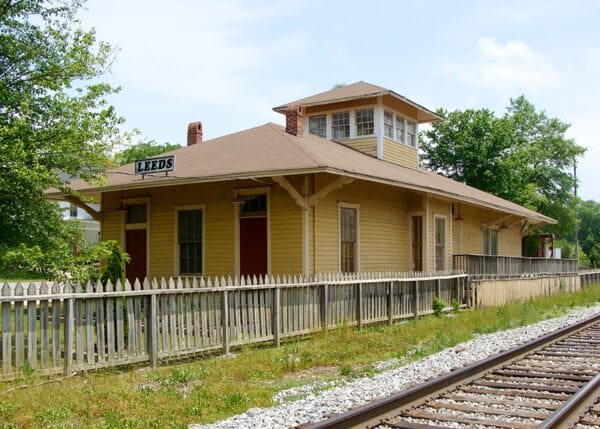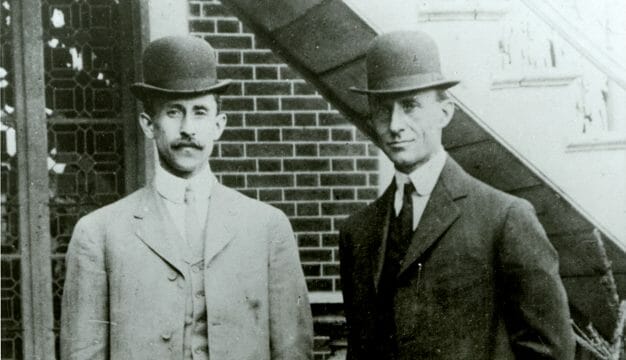Leeds
 Charles Barkley at Auburn
The city of Leeds is located in north-central Alabama largely in Jefferson County; in recent years, it has expanded into both Shelby and St. Clair Counties. A suburb of Birmingham in the Cahaba Valley, the city has a mayor/council form of government and was incorporated in 1887. Former Auburn University and National Basketball Association star Charles Barkley is from Leeds.
Charles Barkley at Auburn
The city of Leeds is located in north-central Alabama largely in Jefferson County; in recent years, it has expanded into both Shelby and St. Clair Counties. A suburb of Birmingham in the Cahaba Valley, the city has a mayor/council form of government and was incorporated in 1887. Former Auburn University and National Basketball Association star Charles Barkley is from Leeds.
History
Leeds arose along an Indian trail in an area that was settled largely by veterans of the War of 1812 and the Creek War of 1813-14. The trail would evolve into a substantial stagecoach route and prompt the growth of a community named Cedar Grove, with a post office being established in the late 1820s or early 1830s. That town was renamed Oak Ridge in 1869.
The area gained the notice of industrialists when iron ore and minerals, including limestone, chalk, and clay, were discovered and in turn brought railroads connecting the area with Atlanta and Savannah, Georgia. One version of the folk tale about the contest between legendary railroad worker John Henry and a steam-powered driver places it near the Leeds area in the late 1880s, whereas others say it took place in West Virginia in the 1870s. In 1884, the town was renamed Leeds for the industrial city in Yorkshire, England, and incorporated on April 27, 1887.
 Train Mural in Leeds
The city grew along with the Birmingham iron industry, other local manufacturing, and agriculture, principally farming and the dairy industry, in the surrounding area. The area’s substantial deposits of minerals and ores led Maj. Frederick Lewis and Col. J. Ross Hanahan to establish in 1906 the Standard Portland Cement Company, which brought additional economic and population growth. Standard was later acquired by the Lehigh Cement Company of Allentown, Pennsylvania, in the mid-1980s. Lehigh also operated a large plant in Birmingham from the early 1920s until the late 1960s. The Leeds plant has made numerous upgrades over the years and remains in operation.
Train Mural in Leeds
The city grew along with the Birmingham iron industry, other local manufacturing, and agriculture, principally farming and the dairy industry, in the surrounding area. The area’s substantial deposits of minerals and ores led Maj. Frederick Lewis and Col. J. Ross Hanahan to establish in 1906 the Standard Portland Cement Company, which brought additional economic and population growth. Standard was later acquired by the Lehigh Cement Company of Allentown, Pennsylvania, in the mid-1980s. Lehigh also operated a large plant in Birmingham from the early 1920s until the late 1960s. The Leeds plant has made numerous upgrades over the years and remains in operation.
Demographics
According to 2020 Census estimates, Leeds recorded a population of 12,555. Of that number, 82.9 percent of respondents identified themselves as white, 13.8 percent as African American, 3.9 percent as Hispanic, 2.7 percent as two or more races, 0.1 percent as Native Hawaiian and Other Pacific Islander, and 0.1 percent as Asian. The town’s median household income was $62,227, and the per capita income was $30,513.
Employment
According to 2020 Census estimates, the workforce in Leeds was divided among the following industrial categories:
- Educational services and health care and social assistance (18.9 percent)
- Professional, scientific, and management, and administrative and waste management services (12.6 percent)
- Retail trade (11.6 percent)
- Arts, entertainment, and recreation, and accommodation and food services (10.7 percent)
- Manufacturing (10.3 percent)
- Construction (8.9 percent)
- Other services, except public administration (8.4 percent)
- Finance and insurance, and real estate and rental and leasing (7.0 percent)
- Transportation and warehousing, and utilities (3.9 percent)
- Wholesale trade (3.0 percent)
- Public administration (2.1 percent)
- Information (1.6 percent)
- Agriculture, forestry, fishing and hunting, and extraction (1.1 percent)
Education
Public education is administered by the Leeds City Schools, which oversees one K-5 elementary school, one 6-8 middle school, and one 9-12 high school. As a suburb of Birmingham, Leeds is close to several major institutions of higher learning: the University of Alabama at Birmingham, Samford University, and Birmingham-Southern College. In addition, the historically black Miles College and Miles Law School, Birmingham School of Law, Jefferson State Community College, and Lawson State Community College provide other educational opportunities in the Leeds vicinity.
Transportation
Leeds is located a few miles south of Interstate 20, which runs east-west connecting Birmingham and Atlanta. That road is accessed by U.S. route 78 and 411 and state roads 4 and 25. The Norfolk Southern Railroad operates a rail line through Leeds. The city lies almost equidistant between the Birmingham-Shuttlesworth International Airport and the Saint Clair County Airport.
Events and Places of Interest
 Southern Railroad Depot in Leeds
The Jonathan Bass House Museum (ca. 1865) is owned by the Leeds Historical Society and features local memorabilia; the Bass family arrived in Jefferson County around 1816. The Bass House, along with the Southern Railroad Depot (ca. 1875) and the Leeds Downtown Historic District are on the National Register of Historic Places, and the Rowan Oaks Historic Home (ca. 1904) is also an important landmark. Veterans Memorial Park honors all individuals in the area who served in the nation’s armed forces, and the Leeds City Park features a swimming pool and a civic center with an indoor basketball court. Nearby is the Terry Walker Country Club, an 18-hole public golf course. Beginning in the late spring, the city hosts a farmer’s market every Friday that lasts through the summer. For 17 years, the city has held the Creek Bank Festival, which features entertainment, arts and crafts, and food vendors, at the end of April. Since 2008, the city has sponsored the Leeds John Henry Celebration and Fall Festival in mid-September in the downtown area, which features folk music, food vendors, and arts and crafts and also honors the legend of John Henry. Residents also support an arts council and a historical society.
Southern Railroad Depot in Leeds
The Jonathan Bass House Museum (ca. 1865) is owned by the Leeds Historical Society and features local memorabilia; the Bass family arrived in Jefferson County around 1816. The Bass House, along with the Southern Railroad Depot (ca. 1875) and the Leeds Downtown Historic District are on the National Register of Historic Places, and the Rowan Oaks Historic Home (ca. 1904) is also an important landmark. Veterans Memorial Park honors all individuals in the area who served in the nation’s armed forces, and the Leeds City Park features a swimming pool and a civic center with an indoor basketball court. Nearby is the Terry Walker Country Club, an 18-hole public golf course. Beginning in the late spring, the city hosts a farmer’s market every Friday that lasts through the summer. For 17 years, the city has held the Creek Bank Festival, which features entertainment, arts and crafts, and food vendors, at the end of April. Since 2008, the city has sponsored the Leeds John Henry Celebration and Fall Festival in mid-September in the downtown area, which features folk music, food vendors, and arts and crafts and also honors the legend of John Henry. Residents also support an arts council and a historical society.
Additional Resources
Jefferson County Heritage Book Committee. The Heritage of Jefferson County. Clanton, Ala.: Heritage Publishing Consultants, 2002.



